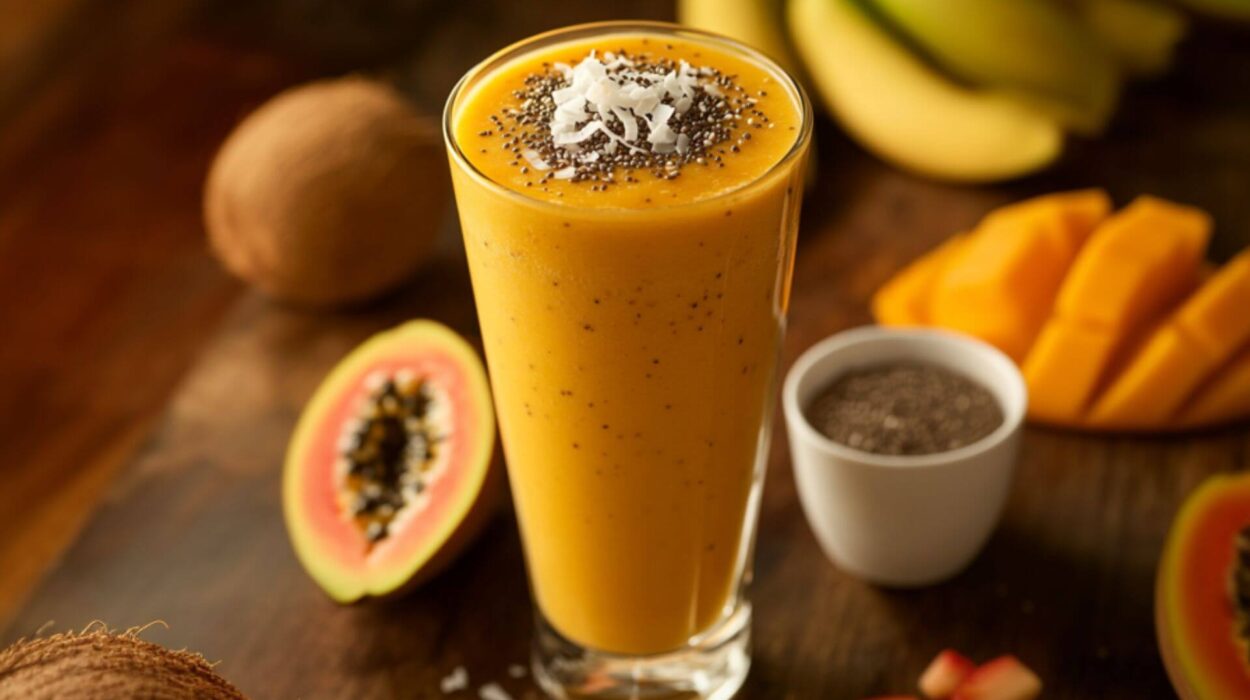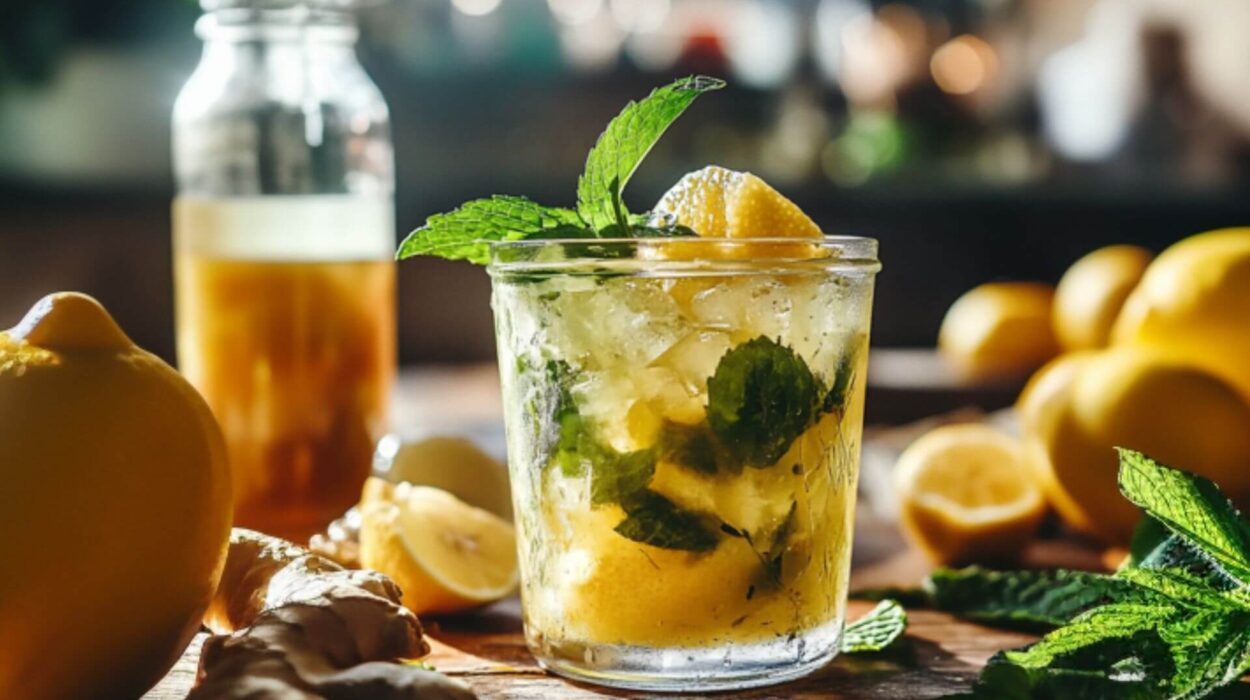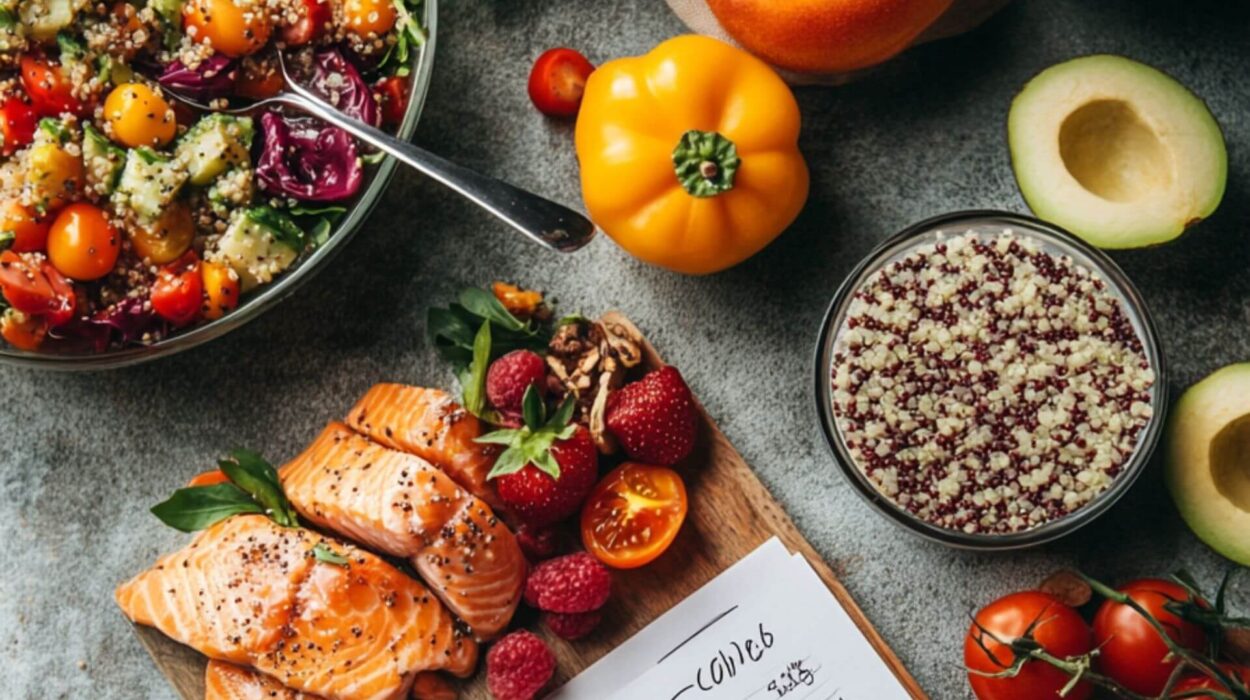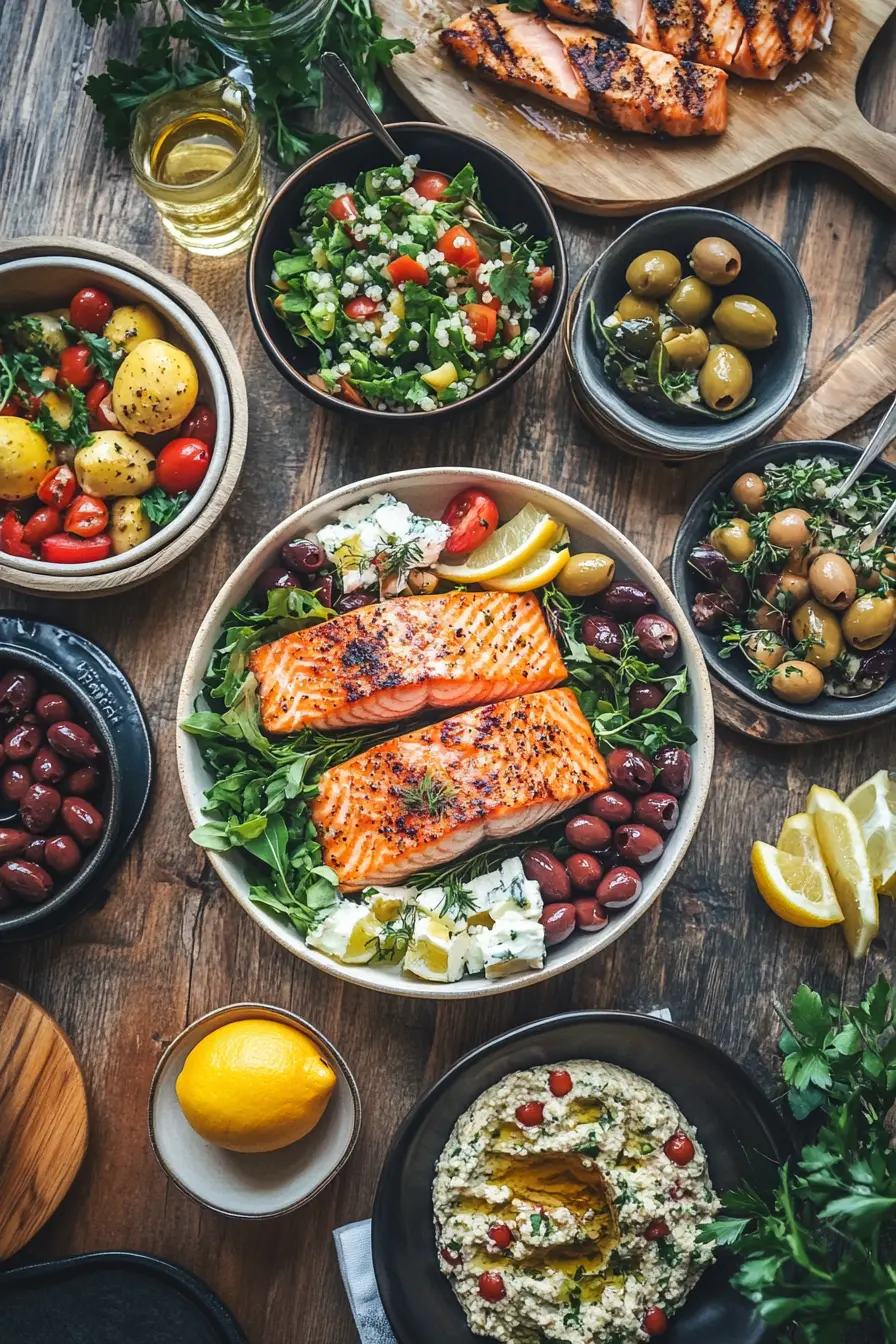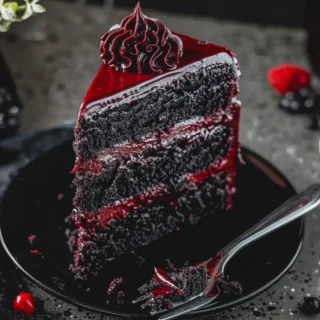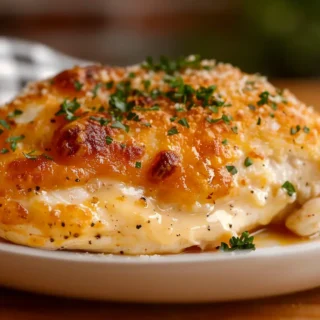Pancakes are a breakfast staple, but not all pancakes are created equal. The secret to fluffy buttermilk pancakes lies in the right ingredients and techniques. Buttermilk not only adds a rich tangy flavor but also creates an incredibly soft and airy texture.
Whether you’re a seasoned home cook or a beginner, this guide will help you master the fluffiest buttermilk pancakes with expert tips, a foolproof recipe, and solutions to common pancake-making mistakes.
Let’s dive into what makes buttermilk pancakes extra fluffy and delicious!
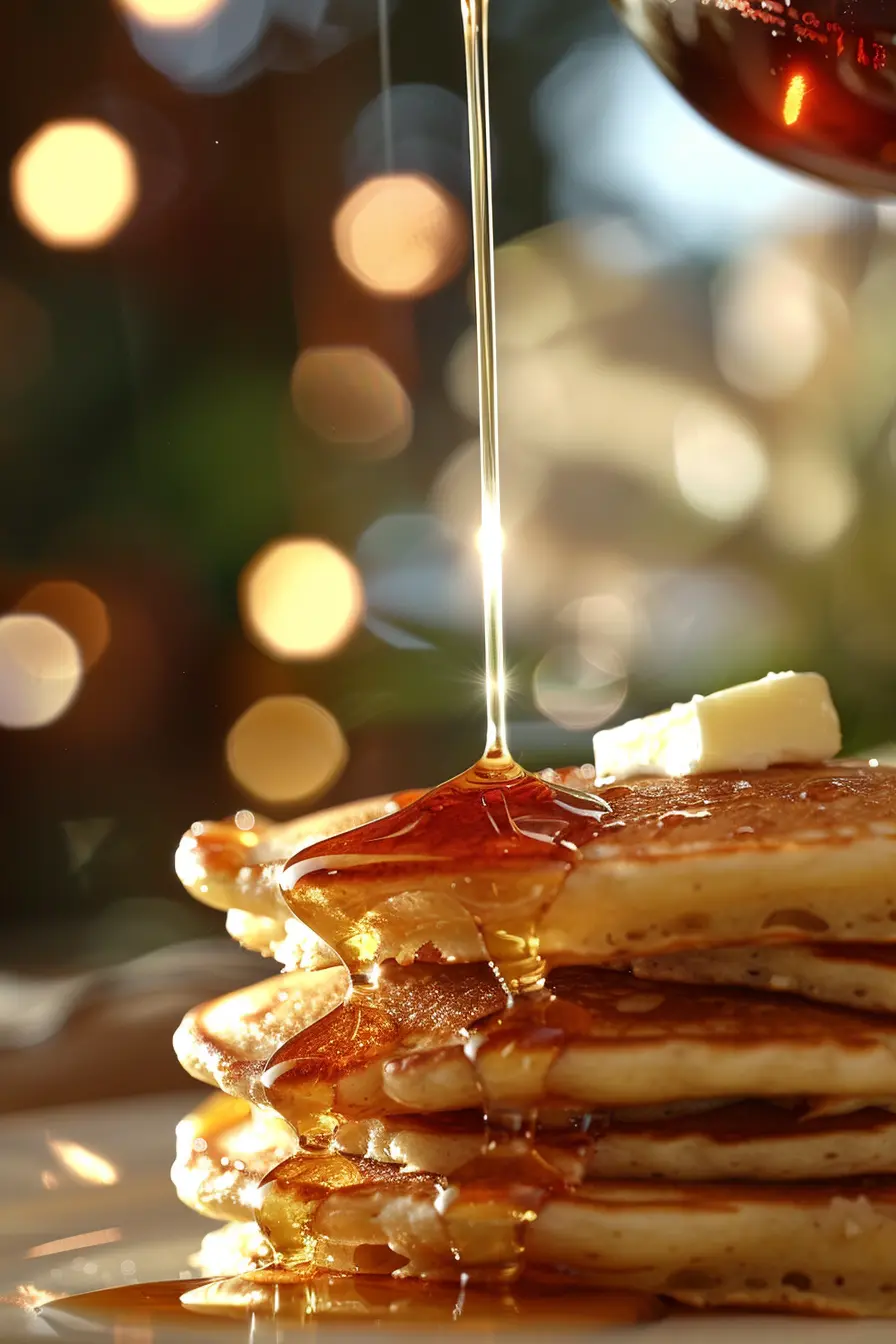
Table of Contents
Why Buttermilk is the Key to Fluffy Pancakes
The Science Behind Buttermilk in Pancakes
Buttermilk plays a crucial role in creating light, airy pancakes. Unlike regular milk, buttermilk is acidic, which reacts with baking soda to produce carbon dioxide bubbles. These tiny bubbles get trapped in the batter, causing it to rise and giving pancakes their signature fluffy texture.
How Buttermilk Affects Texture & Flavor
- Creates Tender Pancakes – The acid in buttermilk breaks down gluten, resulting in a softer, melt-in-your-mouth texture.
- Boosts Fluffiness – When combined with the right leavening agents, buttermilk gives pancakes the perfect lift.
- Enhances Flavor – Buttermilk adds a slight tang that balances the sweetness of the pancakes, making them rich and flavorful.
Buttermilk isn’t just for tradition—it’s a game-changer for achieving thick, fluffy pancakes every time!
Essential Ingredients for Fluffy Buttermilk Pancakes
The secret to fluffy buttermilk pancakes starts with choosing the right ingredients. Each component plays a crucial role in the texture, flavor, and overall success of your pancakes. Let’s break down the essentials.
Choosing the Right Flour & Leavening Agents
The type of flour and leavening agents you use will determine the lightness and rise of your pancakes.
- Flour: Use all-purpose flour for the best balance of structure and softness. If you prefer a healthier option, whole wheat flour can work but may make the pancakes denser. Try a mix of both for a fluffy-yet-nutritious version.
- Leavening Agents: The combination of baking soda and baking powder is what makes pancakes rise.
- Baking powder provides an initial lift when mixed with liquid.
- Baking soda reacts with the acidity in buttermilk, creating carbon dioxide bubbles for extra fluffiness.
Why Fresh Buttermilk Matters
Buttermilk is the star ingredient in these pancakes. Using fresh buttermilk ensures the best reaction with baking soda, leading to taller, airier pancakes. If you don’t have buttermilk, you can make a quick substitute by adding 1 tablespoon of lemon juice or white vinegar to 1 cup of milk. Let it sit for 5-10 minutes before using.
Butter vs. Oil – Which is Best?
- Butter adds a rich, creamy flavor to pancakes. However, it can make the pancakes slightly heavier.
- Oil (such as vegetable or canola oil) helps keep pancakes moist and fluffy without overpowering the buttermilk’s flavor.
- The best approach? Use melted butter in the batter for flavor and a little oil on the pan for an even, golden-brown crust.
The Secret Techniques for the Fluffiest Pancakes
Even with the best ingredients, your pancakes won’t be light and fluffy unless you follow the right techniques. Here are the key steps to achieving the perfect fluffy buttermilk pancakes every time.
Perfect Mixing – Why You Shouldn’t Overmix the Batter
One of the biggest mistakes people make is overmixing the pancake batter. Here’s why that’s a problem:
- Overmixing develops gluten, making pancakes tough and chewy instead of light and fluffy.
- A few lumps in the batter are completely fine—they will disappear as the pancakes cook.
- The best method is to gently fold the wet ingredients into the dry ingredients until just combined.
✅ Pro Tip: Use a whisk or spatula and mix until there are no large pockets of dry flour, but don’t worry about small lumps!
The Resting Time Trick for Extra Fluffiness
Letting your batter rest for 5-10 minutes before cooking can make a huge difference in texture.
- Resting allows the flour to absorb the liquid, making the pancakes softer and smoother.
- It also gives the baking soda and buttermilk time to react, ensuring maximum fluffiness when they hit the pan.
- If you have time, let the batter sit at room temperature for 10 minutes before cooking.
✅ Pro Tip: Cover the batter with a kitchen towel while it rests to prevent it from drying out.
How to Make Buttermilk Pancakes
Now that you know the secrets to fluffy buttermilk pancakes, let’s put it all together with a simple, step-by-step recipe.
📝 Ingredients
Dry Ingredients:
- 2 cups all-purpose flour
- 2 tablespoons granulated sugar
- 1 teaspoon baking soda
- 2 teaspoons baking powder
- ½ teaspoon salt
Wet Ingredients:
- 2 cups buttermilk (shake well before using)
- 2 large eggs
- ¼ cup melted butter (or vegetable oil)
- 1 teaspoon vanilla extract
For Cooking:
- Butter or oil for greasing the pan
🥞 Instructions
Step 1: Mix Dry Ingredients
In a large mixing bowl, whisk together the flour, sugar, baking soda, baking powder, and salt. This ensures that the leavening agents are evenly distributed.
Step 2: Combine Wet Ingredients
In a separate bowl, whisk the eggs until frothy, then add the buttermilk, melted butter (or oil), and vanilla extract. Stir until well combined.
Step 3: Gently Mix the Batter
- Pour the wet ingredients into the dry ingredients.
- Use a spatula or whisk to gently fold them together.
- Do not overmix! The batter should be slightly lumpy—this is key to fluffy pancakes.
Step 4: Let the Batter Rest
Cover the bowl and let the batter sit for 5-10 minutes while you heat the pan. This allows the baking soda and buttermilk to create air bubbles, making the pancakes light and airy.
Step 5: Heat the Pan & Grease It
- Heat a non-stick skillet or griddle over medium-low heat.
- Lightly grease with butter or oil—too much can cause uneven browning.
Step 6: Cook the Pancakes
- Pour ¼ cup of batter onto the heated pan.
- Cook until bubbles form on the surface and the edges start to look set (about 2 minutes).
- Flip and cook for another 1-2 minutes until golden brown.
Step 7: Serve & Enjoy!
Stack your fluffy buttermilk pancakes high and serve with maple syrup, fresh fruit, or whipped cream!
Common Mistakes & How to Fix Them
Even with the best recipe, small mistakes can lead to flat, dense, or dry pancakes. Here are the most common pancake-making errors and how to fix them to ensure you always get fluffy buttermilk pancakes.
❌ Mistake #1: Overmixing the Batter
🔴 Why it happens:
- Mixing too much develops gluten, making pancakes chewy and dense instead of light and airy.
- A completely smooth batter is actually a bad sign!
✅ How to fix it:
- Mix gently until there are no large dry spots, but leave some small lumps.
- Use a spatula or a whisk, and stop as soon as the ingredients are combined.
❌ Mistake #2: Not Letting the Batter Rest
🔴 Why it happens:
- Skipping the resting step means the baking soda and buttermilk don’t have enough time to react.
- This leads to less air bubbles, resulting in flatter pancakes.
✅ How to fix it:
- Let the batter rest for at least 5-10 minutes before cooking.
- This allows the flour to absorb moisture and ensures maximum fluffiness.
❌ Mistake #3: Using the Wrong Heat Level
🔴 Why it happens:
- Too high heat burns the outside while leaving the inside raw.
- Too low heat makes pancakes pale and dense.
✅ How to fix it:
- Use medium-low heat for a golden-brown color and fully cooked center.
- If the pancakes are burning too quickly, lower the heat slightly.
❌ Mistake #4: Flipping Too Early (or Too Often)
🔴 Why it happens:
- Flipping too soon causes the batter to break apart.
- Flipping too many times deflates the air bubbles, making pancakes dense.
✅ How to fix it:
- Flip only once when you see bubbles forming on the surface and the edges start to look set (about 2 minutes).
- After flipping, cook for another 1-2 minutes.
❌ Mistake #5: Using Old Baking Soda or Baking Powder
🔴 Why it happens:
- Expired baking soda or baking powder won’t react properly, resulting in flat pancakes.
✅ How to fix it:
- Check the expiration date!
- To test baking powder, mix 1 teaspoon with hot water—if it bubbles, it’s still good.
- To test baking soda, mix 1 teaspoon with vinegar—if it fizzes, it’s fresh!
Buttermilk vs. Regular Milk in Pancakes – Which is Better?
One of the most common pancake questions is: Should I use buttermilk or regular milk? Both have their pros and cons, but if you want fluffy, soft, and flavorful pancakes, buttermilk is the clear winner. Let’s compare the two!
🥛 Regular Milk in Pancakes
✅ Pros:
- Easy to find and always available.
- Works well for a neutral flavor.
❌ Cons:
- Doesn’t provide as much lift or fluffiness.
- Lacks the slight tangy flavor that makes pancakes taste richer.
Regular milk is fine for basic pancakes, but the lack of acidity means you may need extra baking powder to help them rise.
🥛 Buttermilk in Pancakes (The Best Choice!)
✅ Pros:
- Makes pancakes extra fluffy because the acidity reacts with baking soda to create air bubbles.
- Adds a rich, slightly tangy flavor that balances the sweetness.
- Creates a softer texture by breaking down gluten.
❌ Cons:
- Can be harder to find in some stores.
- Doesn’t last as long as regular milk in the fridge.
Buttermilk is the best choice for light, airy, and flavorful pancakes. If you don’t have any, you can make a homemade substitute:
👉 DIY Buttermilk Substitute: Mix 1 cup of milk with 1 tablespoon of lemon juice or vinegar. Let it sit for 5-10 minutes before using.
🔍 Comparison Table: Buttermilk vs. Regular Milk in Pancakes
| Feature | Regular Milk | Buttermilk |
|---|---|---|
| Fluffiness | Moderate | ⭐⭐⭐⭐⭐ Extra Fluffy |
| Flavor | Neutral | Slightly Tangy & Rich |
| Texture | Firm | Soft & Tender |
| Reaction with Baking Soda | Weak | Strong (More Air Bubbles!) |
| Best For | Basic Pancakes | Thick, Soft, & Flavorful Pancakes |
👉 Verdict: If you want the fluffiest, most delicious pancakes, always choose buttermilk!
Baking Powder vs. Baking Soda – Which Makes Pancakes Fluffier?
When it comes to fluffy buttermilk pancakes, choosing the right leavening agent is essential. Both baking powder and baking soda help pancakes rise, but they work in different ways. Let’s break it down!
🧪 What is Baking Soda?
- Baking soda (sodium bicarbonate) is a base that needs an acid (like buttermilk, lemon juice, or vinegar) to create carbon dioxide bubbles.
- This reaction happens immediately, which is why pancakes start to rise as soon as the batter is mixed.
✅ Pros:
- Creates a quick rise in pancakes.
- Works best in acidic batters (like buttermilk pancakes).
❌ Cons:
- If too much is used, it can leave a bitter taste.
- Doesn’t work well without an acidic ingredient.
👉 Best for: Recipes with buttermilk, yogurt, or sour cream.
🧪 What is Baking Powder?
- Baking powder contains both baking soda and an acid (cream of tartar).
- It creates two rises: one when mixed with liquid, and another when heated.
- This makes it more forgiving than baking soda alone.
✅ Pros:
- Works even if your batter doesn’t contain an acid.
- Provides a second rise for extra fluffiness.
❌ Cons:
- Can make pancakes too cakey if overused.
- Doesn’t react as strongly as baking soda + buttermilk.
👉 Best for: Recipes using regular milk instead of buttermilk.
🔍 Baking Powder vs. Baking Soda: Which One is Best?
| Feature | Baking Soda | Baking Powder |
|---|---|---|
| Needs Acid to Work | ✅ Yes | ❌ No (already contains acid) |
| Creates Carbon Dioxide Bubbles | ✅ Strongly | ✅ Moderately |
| Works Best With | Buttermilk, yogurt, vinegar | Regular milk, neutral batters |
| Flavor Impact | Can be bitter if too much is used | Neutral taste |
| Best For Fluffy Pancakes? | ⭐⭐⭐⭐⭐ (When used with buttermilk) | ⭐⭐⭐ (Less powerful rise) |
👉 Verdict: The best way to make fluffy buttermilk pancakes is to use a combination of both baking soda and baking powder. The baking soda reacts with buttermilk for a quick rise, while the baking powder provides a steady lift as the pancakes cook.
Baking Powder vs. Baking Soda – Which Makes Pancakes Fluffier?
When it comes to fluffy buttermilk pancakes, choosing the right leavening agent is essential. Both baking powder and baking soda help pancakes rise, but they work in different ways. Let’s break it down!
🧪 What is Baking Soda?
- Baking soda (sodium bicarbonate) is a base that needs an acid (like buttermilk, lemon juice, or vinegar) to create carbon dioxide bubbles.
- This reaction happens immediately, which is why pancakes start to rise as soon as the batter is mixed.
✅ Pros:
- Creates a quick rise in pancakes.
- Works best in acidic batters (like buttermilk pancakes).
❌ Cons:
- If too much is used, it can leave a bitter taste.
- Doesn’t work well without an acidic ingredient.
👉 Best for: Recipes with buttermilk, yogurt, or sour cream.
🧪 What is Baking Powder?
- Baking powder contains both baking soda and an acid (cream of tartar).
- It creates two rises: one when mixed with liquid, and another when heated.
- This makes it more forgiving than baking soda alone.
✅ Pros:
- Works even if your batter doesn’t contain an acid.
- Provides a second rise for extra fluffiness.
❌ Cons:
- Can make pancakes too cakey if overused.
- Doesn’t react as strongly as baking soda + buttermilk.
👉 Best for: Recipes using regular milk instead of buttermilk.
🔍 Baking Powder vs. Baking Soda: Which One is Best?
| Feature | Baking Soda | Baking Powder |
|---|---|---|
| Needs Acid to Work | ✅ Yes | ❌ No (already contains acid) |
| Creates Carbon Dioxide Bubbles | ✅ Strongly | ✅ Moderately |
| Works Best With | Buttermilk, yogurt, vinegar | Regular milk, neutral batters |
| Flavor Impact | Can be bitter if too much is used | Neutral taste |
| Best For Fluffy Pancakes? | ⭐⭐⭐⭐⭐ (When used with buttermilk) | ⭐⭐⭐ (Less powerful rise) |
👉 Verdict: The best way to make fluffy buttermilk pancakes is to use a combination of both baking soda and baking powder. The baking soda reacts with buttermilk for a quick rise, while the baking powder provides a steady lift as the pancakes cook.
Creative Variations of Buttermilk Pancakes
Classic fluffy buttermilk pancakes are delicious on their own, but adding different flavors and mix-ins can take them to the next level! Whether you love fruit, chocolate, or healthier options, here are some fun and tasty variations to try.
🍫 1. Chocolate Chip Buttermilk Pancakes
If you have a sweet tooth, adding chocolate chips makes pancakes extra indulgent!
✅ How to Make It:
- Add ½ cup of chocolate chips to the batter.
- For extra gooey pancakes, sprinkle a few more chips on top before flipping.
- Serve with whipped cream and a drizzle of chocolate syrup.
👉 Best For: Kids, dessert lovers, or a special breakfast treat!
🫐 2. Blueberry Buttermilk Pancakes
Fresh or frozen blueberries add a burst of juicy sweetness and antioxidants.
✅ How to Make It:
- Gently fold in 1 cup of fresh or frozen blueberries into the batter.
- For even cooking, drop the blueberries onto the batter once it’s on the pan instead of mixing them in.
- Serve with maple syrup and a dusting of powdered sugar.
👉 Best For: A refreshing, fruit-filled breakfast.
🍌 3. Banana Buttermilk Pancakes
Mashed bananas add natural sweetness and make the pancakes even softer.
✅ How to Make It:
- Mash 1 ripe banana and mix it into the wet ingredients before combining with the dry ingredients.
- For extra flavor, add ½ teaspoon of cinnamon.
- Serve with sliced bananas, honey, or peanut butter.
👉 Best For: A healthier, naturally sweet pancake option.
🌾 4. Whole Wheat Buttermilk Pancakes (Healthier Option)
Want a healthier twist on classic pancakes? Use whole wheat flour for extra fiber and nutrients.
✅ How to Make It:
- Replace 50% of the all-purpose flour with whole wheat flour.
- To prevent dense pancakes, increase the buttermilk by ¼ cup.
- Serve with Greek yogurt, honey, and nuts for a wholesome breakfast.
👉 Best For: A nutritious, high-fiber start to your day.
🥥 5. Coconut Buttermilk Pancakes
For a tropical twist, add coconut flakes to your pancakes!
✅ How to Make It:
- Stir in ½ cup of shredded coconut into the batter.
- Use coconut milk instead of buttermilk for extra coconut flavor.
- Serve with toasted coconut flakes and tropical fruit like mango or pineapple.
👉 Best For: A tropical-inspired breakfast experience.
🍏 6. Apple Cinnamon Buttermilk Pancakes
The combination of sweet apples and warm cinnamon makes these pancakes taste like apple pie!
✅ How to Make It:
- Grate ½ cup of apple and mix it into the batter.
- Add 1 teaspoon of cinnamon for extra warmth.
- Serve with caramel sauce or maple syrup.
👉 Best For: A cozy, fall-inspired breakfast.
🥞 7. Protein Buttermilk Pancakes (High-Protein Option)
If you want pancakes that keep you full longer, add protein powder for a nutritious boost.
✅ How to Make It:
- Replace ¼ cup of flour with vanilla or unflavored protein powder.
- Use Greek yogurt or egg whites for extra protein.
- Serve with nut butter, chia seeds, and fresh berries.
👉 Best For: A high-protein breakfast to fuel your day.
Fluffy Buttermilk Pancakes – FAQ
What is the secret to fluffy pancakes?
The secret to fluffy pancakes is a combination of ingredients and technique:
✅ Use buttermilk – The acidity helps activate baking soda, creating air bubbles.
✅ Use both baking powder & baking soda – This combination gives pancakes a better rise.
✅ Don’t overmix the batter – Mixing too much makes pancakes dense. Leave some lumps!
✅ Let the batter rest – Resting for 5-10 minutes allows air bubbles to form, making pancakes extra fluffy.
Why are my buttermilk pancakes not fluffy?
Your pancakes may be flat or dense because of these reasons:
❌ Overmixing the batter – Develops too much gluten, making them chewy instead of light.
❌ Not using fresh baking powder or baking soda – Old leavening agents won’t create enough bubbles.
❌ Cooking on the wrong heat – Too high, and they burn before rising; too low, and they stay dense.
❌ Skipping the resting time – Giving the batter time to rest helps with fluffiness.
What ingredient makes pancakes more fluffy?
The key ingredients for fluffiness are:
✔️ Baking soda + buttermilk – Creates air bubbles that make pancakes rise.
✔️ Baking powder – Gives an extra lift during cooking.
✔️ Eggs – Help with structure and fluffiness.
✔️ Flour with the right balance – Too much flour makes pancakes heavy, so measure carefully!
Are pancakes better with milk or buttermilk?
🥛 Buttermilk is better for pancakes than regular milk because:
The acidity in buttermilk reacts with baking soda for extra fluffiness.
It gives pancakes a soft, tender texture.
It adds a delicious tangy flavor that balances sweetness.
If you don’t have buttermilk, you can make a DIY version by adding 1 tablespoon of vinegar or lemon juice to 1 cup of milk and letting it sit for 5-10 minutes.
Is baking soda or baking powder better for fluffy pancakes?
Both are important! Here’s why:
Baking soda reacts with buttermilk for a quick rise.
Baking powder gives an extra lift during cooking.
👉 For the fluffiest pancakes, use both!
What is the secret of amazing pancakes?
The best pancakes come down to these tips:
⭐ Use fresh ingredients – Old baking powder or baking soda won’t work.
⭐ Don’t overmix the batter – A few lumps are good!
⭐ Let the batter rest – This allows air bubbles to develop.
⭐ Cook on medium-low heat – Too hot, and they burn; too low, and they won’t rise.
⭐ Flip only once – Wait until you see bubbles before flipping.
